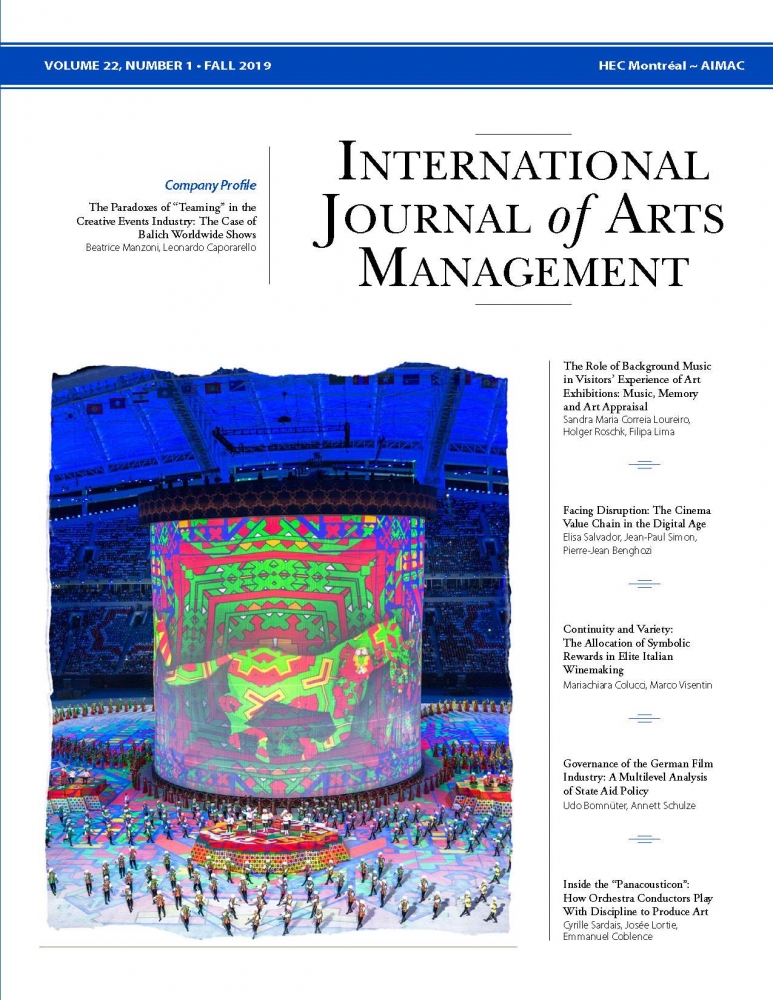IJAM Volume 22 Number 1 (PDF)
Product: Journal
$53.00 CA
FROM THE EDITOR
This Fall 2019 issue provides an inspiring view of management and marketing research in arts and culture. The topics of the articles included herein bring new perspectives on how arts organizations and cultural industries are managed.
In the area of marketing, our first article, by Sandra Maria Correia Loureiro, Holger Roschk and Filipa Lima, explores the effect of background music on the perception and memory of an art exhibition. Based on two experiments, one conducted in laboratory, the other in seven art galleries, the authors show that, contrary to the general conclusion found in the literature, music may have adverse effects. However, art galleries can benefit from music if it matches the style of the artwork being presented.
The second article, by Elisa Salvador, Jean-Paul Simon and Pierre-Jean Benghozi, investigates how new disruptive technologies are challenging the whole organization and the value chain of the cinema industry. This research questions the current role of public intervention, asking whether this new environment should call for an alternative policy to the one of traditional silo financing that has dominated up until now.
In the next contribution, Mariachiara Colucci and Marco Visentin analyze how the development of new cultural products is rewarded, by considering the field of elite Italian winemaking, a context characterized by a semi-independent reward system. An analysis of the awards received between 2001 and 2005 reveals both convergence towards the dominant set of norms (“continuity”) and a degree of openness to innovative products that deviate from prevailing norms and standards (“variety”) within the same reward system.
In the realm of management, our first article, contributed by Udo Bomnüter and Annett Schulze, examines Germany’s system of state aid for film, which combines a high degree of subsidization with a decentralized structure. Pairing public data with case studies and a content analysis of film funding guidelines, the authors show that, although films are merit goods, few funders explicitly link their support to non-monetary public benefits.
The next article is the result of a collaboration between Cyrille Sardais, Josée Lortie and Emmanuel Coblence, who mobilize Michel Foucault’s framework of discipline to better understand the way in which orchestra conductors’ leadership is exercised to combine “discipline” and “creativity.” Using ethnographic data and interviews, the authors show that, even though the conductor himself is subject to discipline, the leadership of conductors, far from being undermined in this context, relies on disciplinary devices for reinforcement.
Finally, in the Company Profile – on the entertainment firm Balich Worldwide Shows – Beatrice Manzoni and Leonardo Caporarello provide insights into teamwork in relation to creativity, coordination of extra large teams of extremely diverse and highly specialized personnel, and their capacity for working virtually as well as in person. I wish you an insightful reading experience.
André Courchesne
Editor
